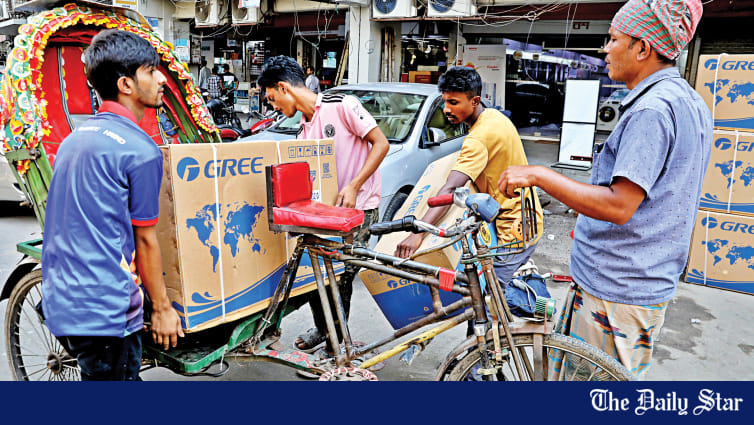- Joined
- Jan 24, 2024
- Messages
- 3,797
- Likes
- 2,025
Sky Bees to invest Tk 550cr to set up drone factory in Bangladesh
Sky Bees Limited, a newly established company, will today sign an agreement with the Bangladesh Export Processing Zones Authority (Bepza) for land to set up an export-oriented unmanned aerial vehicle (UAV) production facility.
Sky Bees is set to invest about Tk 550 crore to establish the facility, which will be built inside the BEPZA industrial estate at the Bangabandhu Sheikh Mujib Shilpa Nagar in Chattogram's Mirsarai upazila.
The company expects to export UAVs, commonly known as drones, worth $169 million or roughly Tk 2,300 crore annually after starting production in early 2025.
Sky Bees is the brainchild of Josim Ahmed, an industrialist with an impressive track record in the textile and garment accessories sector, particularly within the export processing zones of Dhaka and Pabna's Ishwardi upazila.
Ahmed's experience extends to his role in establishing two joint ventures: Global Levels Bangladesh Limited, a Spain-Bangladesh partnership, and Jinque Global Textile Bangladesh Limited, a China-Bangladesh collaboration.
With Sky Bees, Ahmed is now focusing on the future, investing in advanced UAV technology, a sector that holds great promise for Bangladesh's export landscape.
According to him, this project represents the hopes of "many dreamers and confident young people."
He describes their journey as one filled with challenges but driven by innovation.
Regarding his team, Ahmed said: "Their eyes and body language make us brave."
He also noted that their progress in making UAV technology has been substantial despite having limited support for research and development.
Sky Bees has already secured overseas training opportunities for its engineers, enabling them to refine their skills and expertise in drone development, Ahmed added.
Its factory will initially produce high-capacity rotary wing drones for firefighting and vertical take-off and landing (VTOL) drones for cinematography, mapping and surveillance.
They also plan to manufacture 10 additional models with varying payload capacities and endurance.
These UAVs, designed primarily for civil applications, will be used for a range of tasks, including spraying pesticides, delivery services and disaster relief operations.
The company's proposal to BEPZA outlines an ambitious target: the production and export of 7,314 UAVs annually, according to Ahmed.
ASM Anwar Parvez, executive director (public relations) of Bepza, told The Daily Star they are going to sign the deal with Sky Bees to lease land to set up the factory.





































